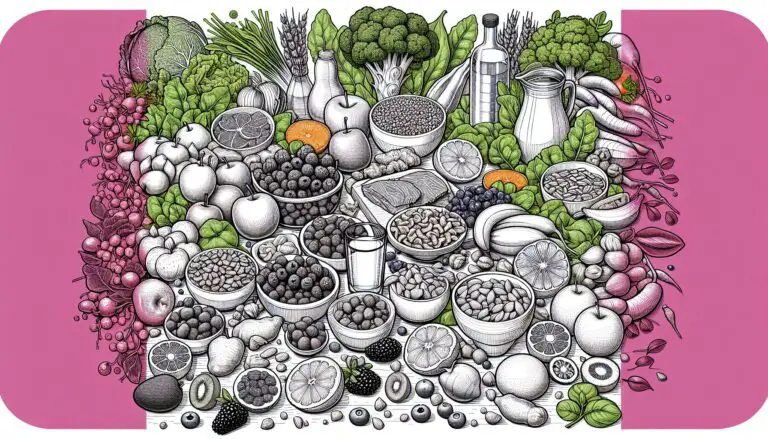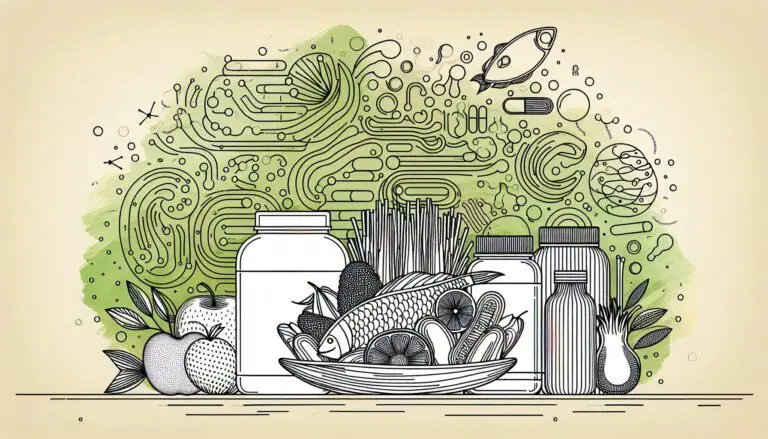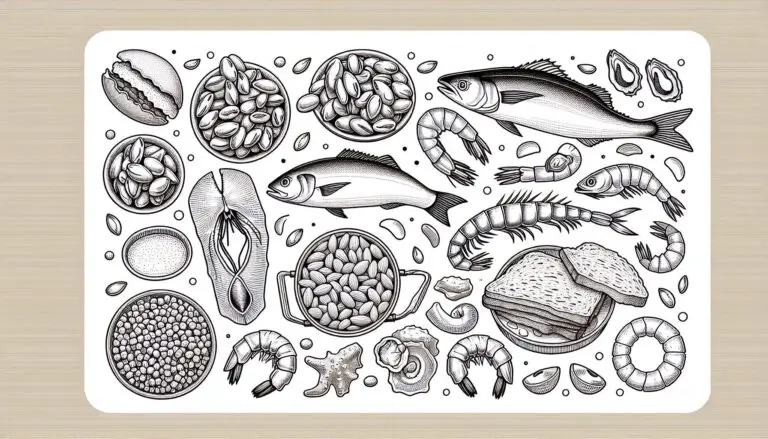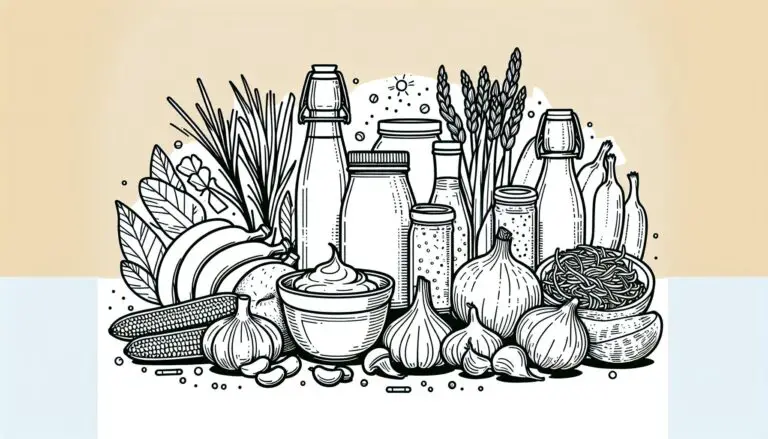Imagine feeling constantly fatigued, foggy-brained, and just not yourself, only to discover mold toxicity is lurking behind your symptoms. It’s a growing concern, yet there’s a natural ally in this fight: adaptogens. These powerful herbs have been used for centuries to help balance the body’s response to stress, including the insidious stress caused by mold exposure. In this text, you’ll jump into how adaptogens can be a game-changer in managing your body’s reaction to mold toxicity. Get ready to uncover the secrets of these natural wonders and how they can help restore your health and well-being.
Understanding Mold Toxicity
When it comes to your health, the impact of mold toxicity can’t be underestimated. Mold produces tiny spores to reproduce, and these spores often contain mycotoxins, harmful substances that can lead to a variety of health issues when inhaled or ingested. Common sources include damp or water-damaged buildings, making it an issue you might face right in your own home.
Mold toxicity is not just about allergies; it’s a complex health concern that can affect your body’s systems in more ways than one. From respiratory problems to cognitive difficulties, the symptoms are diverse and, oftentimes, debilitating. The most commonly reported symptoms include:
- Chronic fatigue and weakness
- Headaches and light sensitivity
- Poor memory and concentration issues
- Sinus congestion and chronic cough
Recognizing these symptoms early on is crucial for managing and mitigating the impact of mold exposure. But, diagnosing mold toxicity can be challenging. Many of its symptoms overlap with those of other conditions, making it a hidden culprit behind prolonged ill health. This is where the connection to stress response comes into play. Mold toxicity puts your body in a constant state of stress, triggering inflammation and impairing your immune system.
Your body’s response to this stress can be moderated with the help of adaptogens. These natural agents help in balancing your stress hormones, leading to an improved resilience against the health effects induced by mold exposure. By regulating your body’s stress response, adaptogens not only aid in combating the symptoms but also play a significant role in restoring your overall well-being.
Understanding the link between mold toxicity and your body’s stress response is the first step towards reclaiming your health. With adaptogens, you have a natural path towards balancing this response and enhancing your body’s ability to fight the detrimental effects of mold.
Impact of Mold Exposure on Health

When you’re faced with mold exposure, the ramifications on your health can range from mild irritations to severe, chronic conditions. Mold produces spores and mycotoxins that, when inhaled, can disrupt your body’s normal functions, leading to a variety of health issues. Understanding these impacts is crucial for those seeking to mitigate the effects of mold toxicity through measures like incorporating adaptogens into their lifestyle.
Mold exposure can lead to respiratory problems such as coughing, wheezing, and difficulty breathing. For those with asthma or other respiratory conditions, mold spores can exacerbate symptoms, making management of these conditions more challenging. Also, the presence of mold can trigger allergic reactions, manifesting as sneezing, itching, and skin rashes in sensitive individuals.
Another significant concern is the effect of mold on your cognitive health. Exposure to mold mycotoxins has been linked to symptoms like fatigue, headaches, and difficulty concentrating, known collectively as “brain fog.” These cognitive disturbances can severely impact your daily functioning, making it hard to perform at work or stay focused on tasks.
The likelihood of experiencing chronic fatigue is also heightened with prolonged mold exposure. This isn’t just about feeling tired; it’s a pervasive sense of exhaustion that doesn’t improve with rest, making everyday activities feel insurmountable.
Understanding the breadth of health problems linked to mold is the first step in safeguarding against its effects. Incorporating adaptogens, known for their stress-modulating properties, can be a significant part of the puzzle in managing and mitigating the health impacts associated with mold toxicity. By supporting your body’s stress response, adaptogens help in restoring balance and resilience, offering a protective buffer against the harmful effects of mold exposure.
Role of Adaptogens in Balancing the Body

Adaptogens play a pivotal role in your body’s defense mechanism against the detriments of mold toxicity. These powerful herbs and mushrooms offer a unique capacity to enhance your body’s resilience, particularly in combating stress induced by environmental factors like mold exposure.
Adaptogens work by modulating your body’s stress response. They do so by targeting the hypothalamic-pituitary-adrenal (HPA) axis, responsible for your body’s stress response mechanism. By influencing this axis, adaptogens help in normalizing physiological functions that might be disrupted by chronic stress or external contaminants like mold spores and mycotoxins. This characteristic makes them invaluable in restoring balance and promoting overall well-being.
Here’s how adaptogens can benefit you in dealing with mold toxicity:
- Enhancing Immune Response: Adaptogens like Ashwagandha and Reishi mushroom act to fortify your immune system, making you less susceptible to mold-induced health issues.
- Reducing Inflammation: Chronic inflammation is a common response to mold exposure. Adaptogens such as Turmeric and Siberian Ginseng have anti-inflammatory properties that help in mitigating this.
- Supporting Detoxification: Certain adaptogens, like Milk Thistle, support liver function, a crucial organ in the detoxification process, helping your body to eliminate toxins more efficiently.
Incorporating adaptogens into your diet is straightforward and versatile. They can be consumed in various forms, including teas, tinctures, supplements, and powders. But, it’s important to choose high-quality products and consult with a healthcare provider to determine the right adaptogens and dosages for your specific needs.
By integrating adaptogens into your daily regimen, you’re not just addressing the immediate impacts of mold toxicity. You’re investing in your body’s long-term resilience and capacity to thrive even though environmental stressors. This approach underscores the importance of a comprehensive strategy in managing health in environments compromised by mold.
Top Adaptogens for Managing Mold Toxicity

When combating mold toxicity, not all adaptogens are created equal. Certain powerful adaptogens stand out for their efficacy in supporting your body’s resilience to the stressors created by mycotoxins—a key factor in mold toxicity. Incorporating these adaptogens into your daily regimen can be a crucial step in managing symptoms and enhancing overall well-being. Here’s a look at some of the top adaptogens for this purpose:
- Ashwagandha: Known for its stress-reducing properties, ashwagandha assists in balancing cortisol levels, so supporting your body’s stress response system. This adaptogen is ideal for improving energy levels and reducing inflammation, making it a go-to for those affected by mold exposure.
- Reishi Mushroom: Often referred to as the “mushroom of immortality,” Reishi mushroom is crucial for immune system support. It helps modulate the immune response, which is essential in fighting off the effects of mold toxicity. Besides, its anti-inflammatory properties aid in reducing symptoms associated with mold exposure.
- Milk Thistle: Focused on liver health, milk thistle promotes detoxification. Given that the liver plays a pivotal role in filtering toxins, including mycotoxins, milk thistle’s ability to support liver function is invaluable in managing mold toxicity.
- Holy Basil (Tulsi): This adaptogen combats stress and supports the detoxification process. Holy Basil’s unique properties make it exceptional not only for stress relief but also for enhancing the body’s natural detox pathways.
Incorporating these adaptogens requires mindfulness about quality and sourcing. Always opt for high-quality, preferably organic, products to ensure maximum benefits. Also, consider personalized recommendations from a healthcare provider to tailor your approach to managing mold toxicity effectively. With the right adaptogens, you’re better equipped to navigate the complexities of mold exposure, taking significant strides toward improved health and resilience.
Incorporating Adaptogens into Your Wellness Routine
Incorporating adaptogens into your wellness routine is a proactive step toward mitigating the effects of mold toxicity on your health. Adaptogens, like Ashwagandha, Reishi mushroom, Milk Thistle, and Holy Basil, have been shown to help the body manage stress and detoxify, essential actions in combating mold toxicity. Begin with understanding your unique health needs and consulting a healthcare provider to tailor the right combination for you.
Starting slowly is key. Introduce one adaptogen at a time into your diet and observe how your body reacts. For example, you might begin with Ashwagandha due to its stress-reducing properties. Incorporate it into your daily regime, perhaps as a supplement in capsule form or mixed into a morning smoothie. Monitoring how you feel over a few weeks will help you gauge its effectiveness and decide whether to introduce another adaptogen.
Diversification in your adaptogen sources can enhance their benefits. Alongside supplements, consider incorporating adaptogen-rich foods into your meals. Reishi mushrooms, for instance, can be added to soups, broths, or teas. This not only diversifies your intake methods but also ensures you’re benefiting from these adaptogens in a variety of forms.
Consistency is paramount. To truly reap the benefits adaptogens offer, they should be consumed regularly. This doesn’t mean you can’t adjust your regimen; as your body’s response to mold exposure changes, so too might your adaptogen needs. Always stay attuned to your body’s signals and adjust your adaptogen intake accordingly.
Remember, high-quality products are essential for maximum efficacy. Opt for organic, non-GMO adaptogens from reputable suppliers to ensure you’re getting the purest forms possible. High-quality products may come with a higher price tag, but the investment in your health and well-being is invaluable.
By incorporating adaptogens into your wellness routine with mindful consideration and consistency, you’re taking a significant step towards balancing your body’s response to mold toxicity. Coupled with a comprehensive approach to health and wellness, adaptogens can play a pivotal role in enhancing your body’s resilience and overall well-being.
Conclusion
Embracing adaptogens like Ashwagandha, Reishi, Milk Thistle, and Holy Basil offers a promising path to counteract the adverse effects of mold toxicity. Remember, the key to harnessing their potential lies in a thoughtful and measured approach. Start with small doses, pay close attention to how your body reacts, and ensure you’re choosing high-quality supplements or food sources. By staying consistent and in tune with your body’s needs, you’ll be well on your way to restoring balance and enhancing your well-being in the face of environmental stressors. Let adaptogens be your ally in exploring the challenges of mold toxicity with grace and vitality.






